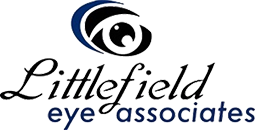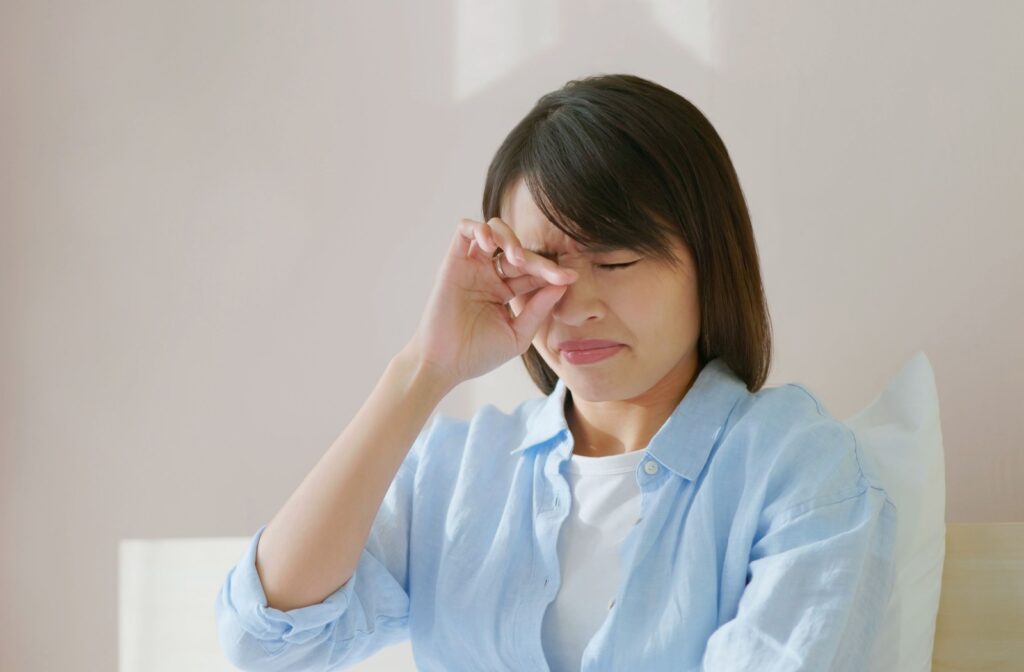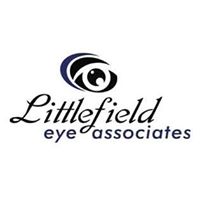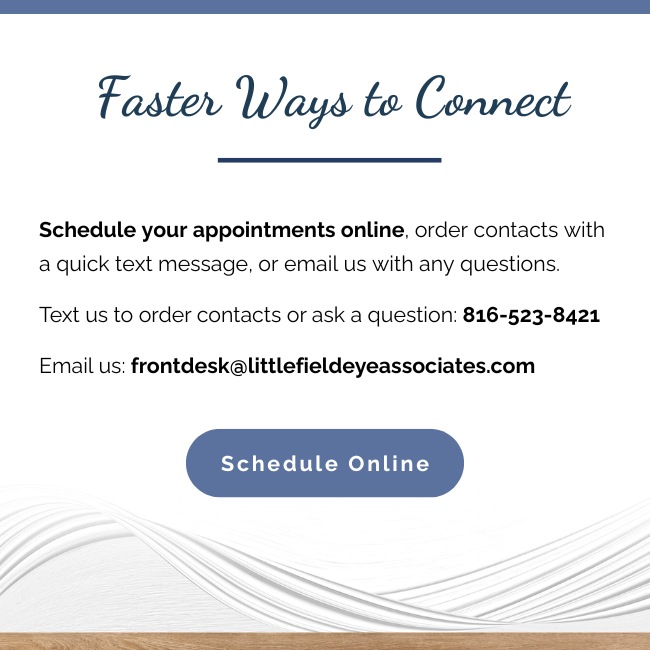Waking up with dry, irritated eyes can make starting your day uncomfortable before it even begins. Morning dry eye is a frustrating but common experience, and it doesn’t always go away once you’re up and moving. Even when your eyes are closed overnight, they’re still vulnerable to dryness.
Dry eye syndrome can affect you any time of day, including while you sleep. It may be triggered by environmental factors, eyelid issues, or medical conditions that reduce tear quality or quantity. Understanding the possible causes of dry eye is the first step to finding relief and protecting your long-term eye comfort.
Common Causes of Morning Dry Eyes
There isn’t just one reason why your eyes feel dry when you wake up. In many cases, it’s a combination of factors that contribute to the gritty, scratchy, or burning sensation that you experience in the morning.
Environmental Factors
- Dry bedroom environment: If the air in your room lacks humidity, it can pull moisture from your eyes while you sleep. Running heat or AC, especially during colder seasons, can make this worse.
- Airflow: Fans or vents blowing directly on your face can speed up tear evaporation, leaving your eyes dry by morning.
- Allergens: Dust, pet dander, or pollen in your room can irritate the eyes overnight and contribute to dryness and inflammation.
Sleep-Related Issues
- Incomplete eyelid closure (nocturnal lagophthalmos): If your eyelids don’t fully close while you sleep, your eyes may be exposed to air all night. This can dry out the tear film and increase the risk of irritation or even infection.
- Sleep disorders: Conditions like sleep apnea can affect oxygen levels in the blood, which in turn may impact eye pressure and circulation. Poor sleep quality can also worsen eye strain.
Health Conditions
- Medications: Some medications, like antihistamines or antidepressants, can reduce tear production and lead to dryness.
- Underlying conditions: Chronic conditions like blepharitis (eyelid inflammation) or autoimmune diseases like Sjögren’s syndrome can interfere with tear quality and production.
Lifestyle Factors
- Screen time: Using digital devices for long periods before bed can reduce your blink rate and dry out your eyes, setting the stage for discomfort overnight.
- Contact lenses: Wearing contacts too long, especially if you fall asleep in them, can reduce oxygen flow and increase dryness.
- Dehydration: Not drinking enough water throughout the day can lower tear production, leaving your eyes dry the next morning.
- Eye makeup: Going to bed without removing mascara or eyeliner can clog glands around your eyes, contributing to inflammation and dryness.
At-Home Solutions for Morning Dry Eye
If you’re dealing with morning dry eye, small changes in your daily routine can make a big difference.
- Use a humidifier: A bedside humidifier can help maintain moisture in your room, reducing overnight dryness.
- Take regular screen breaks: Follow the 20-20-20 rule—every 20 minutes, look at something 20 feet away for 20 seconds—to help reduce eye strain.
- Avoid sleeping in contact lenses: Give your eyes time to rest by removing your contacts before bed.
- Try artificial tears: Preservative-free eye drops can help lubricate your eyes first thing in the morning.
- Apply warm compresses: These can help loosen blockages in the oil glands that support your tear film.
- Clean your eyelids: Use a gentle lid scrub or diluted baby shampoo to remove debris and reduce irritation.
- Use ophthalmic ointments: Thicker nighttime ointments can help protect your eyes and retain moisture while you sleep.
- Sleep masks or moisture goggles: These can help keep your eyes closed and protected, especially if you sleep with your eyes partially open.
- Sleep aids: These devices support eyelid closure and may help if you have nocturnal lagophthalmos.
When to See an Optometrist
If you’ve tried at-home remedies and still wake up with dry, irritated eyes, it may be time to get professional help. Ongoing dry eye symptoms, especially when paired with light sensitivity, blurry vision, or a gritty sensation, can signal underlying issues that need medical treatment.
Regular eye exams also help rule out or manage contributing conditions like blepharitis or meibomian gland dysfunction.
In-Office Treatments for Dry Eye
After a thorough eye exam, we can design a treatment plan for your dry eye symptoms.
- Lubricating eye drops: We may recommend prescription-strength drops to reduce inflammation and improve tear production.
- Punctal plugs: These small devices are inserted into the tear ducts to slow tear drainage and keep your eyes moist longer.
- Meibomian gland treatment: Warm compresses or in-office procedures like IPL can help clear blocked oil glands and improve the quality of your tears.
- IPL therapy: Intense pulsed light (IPL) therapy targets inflammation in the meibomian glands. By helping the oil flow more freely, this noninvasive treatment can stabilize the tear film and reduce evaporation.
- Nutritional support: Omega-3 supplements, as advised by your optometrist, may help reduce inflammation and support tear health.
Start Your Day with Comfortable Eyes
Dry eyes can be more than a minor inconvenience. They can disrupt your rest, affect your focus, and impact your overall well-being. Fortunately, the right combination of daily habits and targeted treatments can help bring lasting relief.
At Littlefield Eye Associates, we offer a full range of personalized dry eye therapies, including lubricating eye drops, punctal plugs, meibomian gland treatment, nutritional support, and intense pulsed light (IPL) therapy. We work with you to create a personalized plan so you can get lasting relief for your dry eye symptoms.
If you’re waking up with dry, irritated eyes, a tailored treatment plan could help you feel more comfortable from the moment your day begins. Schedule your eye exam today, and let’s take the first step toward easing your symptoms and supporting long-term eye health.





